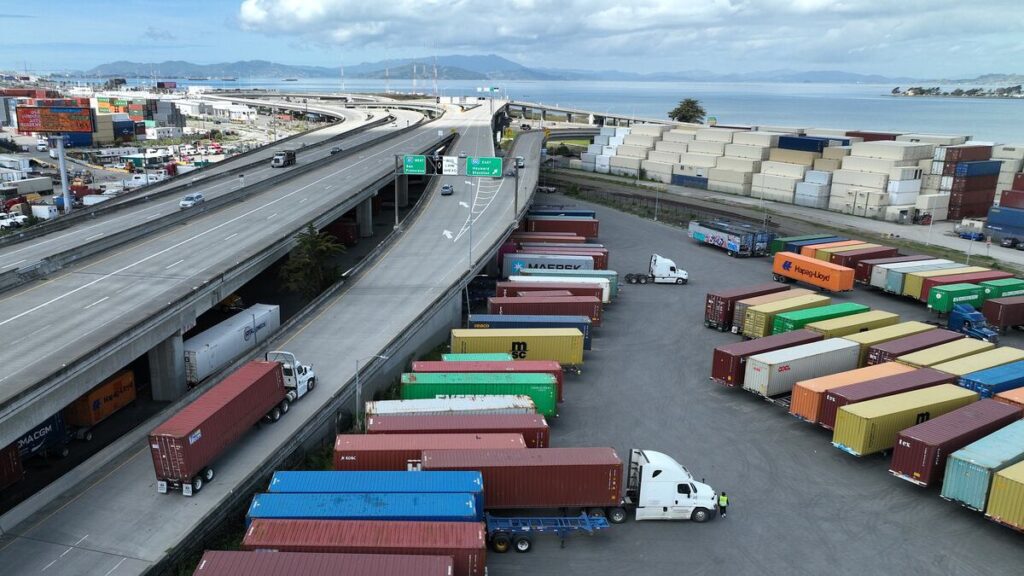
The EPA has finalized a nationwide regulation aimed at speeding up the shift to clean trucks.
Justin Sullivan / Getty Images
The Biden administration has enacted the most stringent limits ever on greenhouse gas emissions from heavy-duty trucks. While public health and environmental advocates are praising this decision as a boost for zero-emission trucks, some trucking organizations argue that the current infrastructure makes it impractical.
The standards apply to a variety of vehicles, including city buses, box trucks, garbage trucks, and large tractors. Manufacturers are responsible for deciding how to meet the requirements, and it is anticipated that they will primarily rely on battery-powered vehicles.
These regulations, which cover the model years from 2027 to 2032, aim to tackle carbon emissions contributing to climate change and the soot and smog that adversely affect human health, alongside separate EPA rules addressing other pollutants from heavy trucks.
Heavy-duty trucks significantly impact the environment; although they represent about 5% of the vehicle fleet in the U.S., they contribute to 20% of transportation emissions.
Electric Vehicle Challenges
While zero-emission heavy-duty trucks are available, their initial costs are higher than conventional diesel trucks. The EPA believes that the long-term savings in fuel and maintenance costs will benefit fleet owners, but some drivers and fleet operators reject this viewpoint, labeling the regulations as impractical and financially burdensome.
Differing Perspectives within the Industry
Health organizations like the American Lung Association wholly support these standards as crucial for public safety, while environmental groups deem them feasible. Conversely, the oil and biofuels industries argue against these regulations on grounds of energy security and cost efficiency.
The trucking industry’s response is mixed. Some trucking representatives express serious concerns about the regulations’ implications for their bottom line, while larger corporations, such as Amazon, advocate for stricter emissions standards as part of their climate objectives. Truck manufacturers are investing heavily in zero-emission vehicles but highlight the necessity for appropriate charging infrastructure to enable broader adoption.


